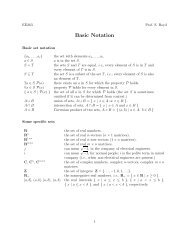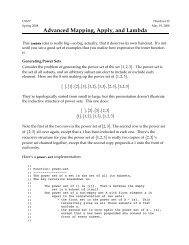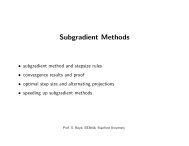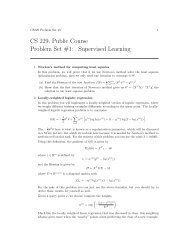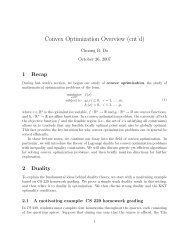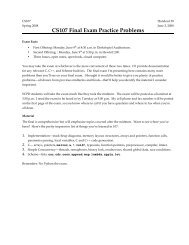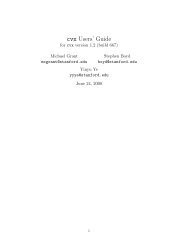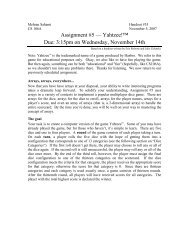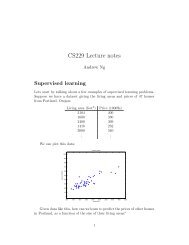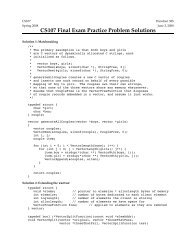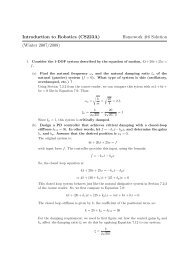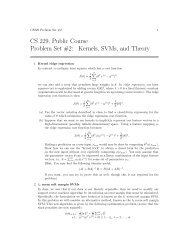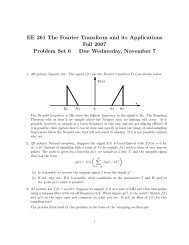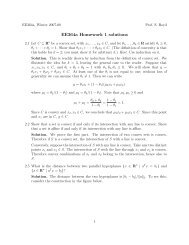Scheme: Functions As Data
Scheme: Functions As Data
Scheme: Functions As Data
Create successful ePaper yourself
Turn your PDF publications into a flip-book with our unique Google optimized e-Paper software.
;;<br />
;; Function: merge<br />
;; ---------------<br />
;; Takes the two lists, each of which is assumed to be sorted<br />
;; according to the specified comparator function, and synthesizes<br />
;; an fresh list which is the sorted merge of the incoming two.<br />
;;<br />
;; If one of the lists is empty, then merge can just return the<br />
;; other one. If not, then the specified comp is used to determine<br />
;; which of the two cars deserves to be at the front. Recursion (what else?)<br />
;; is then used to generate the merge of everything else, and the winning<br />
;; car is consed to the front of it.<br />
;;<br />
(define (merge list1 list2 comp)<br />
(cond ((null? list1) list2)<br />
((null? list2) list1)<br />
((comp (car list1) (car list2))<br />
(cons (car list1)<br />
(merge (cdr list1) list2 comp)))<br />
(else<br />
(cons (car list2)<br />
(merge list1 (cdr list2) comp)))))<br />
The function comment explains the two base cases and the two recursive calls.<br />
The mergesort routine is much easier once merge has been written and tested. The<br />
hardest thing about mergesort is figuring out how to separate the list into two lists of<br />
roughly equal length so that each can be recursively mergesorted and then merged<br />
together. We need a function that returns a copy of the first k elements of an n-element<br />
list. Some implementations of <strong>Scheme</strong> provide built-in functions like nth-cdr and (the<br />
tragically named) butlast to help return the front and back portions of a list. Our<br />
version doesn’t, so we need to write our own quick and dirty versions. (Actually, we get<br />
away with just the second of them: I call is prefix-of-list).<br />
;;<br />
;; Function: prefix-of-list<br />
;; ------------------------<br />
;; Accepts a list and returns a new list with just the<br />
;; first k elements. If k is greater than the original<br />
;; list length, the entire list is replicated. If k is<br />
;; negative, then don't except it to work. :)<br />
;;<br />
(define (prefix-of-list ls k)<br />
(if (or (zero? k) (null? ls)) '()<br />
(cons (car ls) (prefix-of-list (cdr ls) (- k 1)))))<br />
4



